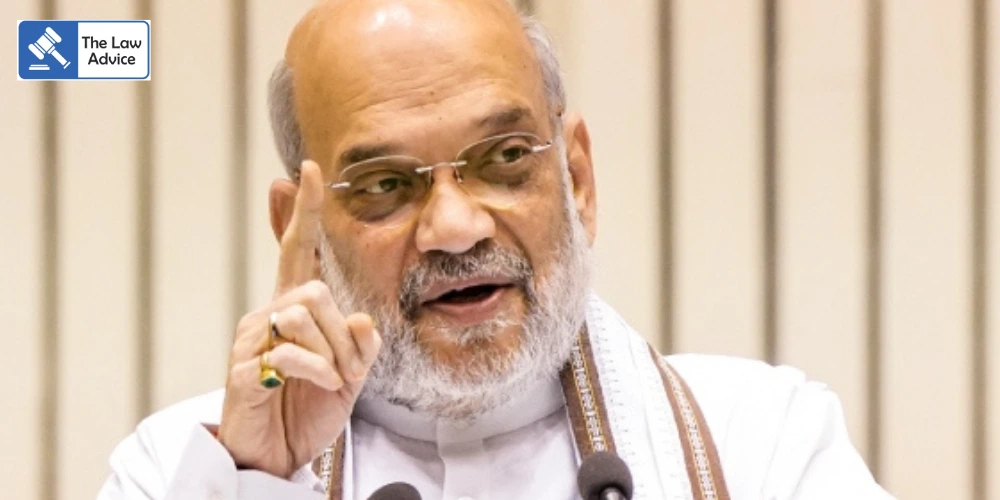A collective of former judges of the Supreme Court and various High Courts, along with senior advocates and legal scholars, have issued a strong joint statement condemning Union Home Minister Amit Shah for his remarks on the 2011 Salwa Judum judgment, calling his interpretation “misleading” and “unfortunate.”
The statement, endorsed by over two dozen eminent legal figures, comes in the backdrop of an increasingly heated campaign for the Vice Presidential election, in which the INDIA bloc has fielded Justice (Retd.) B. Sudershan Reddy—the very judge who authored the Salwa Judum verdict—as its candidate.
The signatories stressed that the 2011 Supreme Court judgment neither supports Naxalism nor provides legitimacy to Maoist ideology, directly contradicting Shah’s claim.
“The judgment nowhere supports, either expressly or by compelling implication of its text, Naxalism or its ideology,” the joint statement declared.
They cautioned that when senior political leaders misrepresent constitutional court rulings, it risks undermining judicial independence.
“Prejudicial misinterpretation of a judgment of the Supreme Court by a high political functionary is likely to have a chilling effect on the judges of the Supreme Court, shaking the independence of the judiciary,” it added.
The signatories also advised that while electoral campaigns for high constitutional offices may legitimately involve ideological contestation, they must be conducted with “civility and dignity” rather than “name-calling” or deliberate distortion.
The Salwa Judum movement emerged in Chhattisgarh in the mid-2000s as a state-backed militia to combat Maoist insurgency. Tribal youth, some as young as teenagers, were recruited as Special Police Officers (SPOs), armed, and deployed against Maoists.
In 2011, a two-judge bench led by Justice B. Sudershan Reddy, with Justice S.S. Nijjar concurring, struck down the practice as unconstitutional. The Court ruled that:
• Arming civilians as SPOs violated Articles 14 and 21 (equality and right to life).
• The policy effectively outsourced the state’s duty of law and order to poorly trained civilians, exposing them to extreme violence.
• The state was directed to immediately disband Salwa Judum and recover arms supplied to civilians.
This judgment was widely seen as a landmark in reinforcing the constitutional limits of state power in conflict zones.
During the Vice Presidential election campaign, Home Minister Amit Shah reportedly accused Justice Reddy of delivering a judgment sympathetic to Naxals. This triggered an uproar in the legal fraternity, with senior retired judges describing Shah’s remarks as both factually wrong and politically dangerous.
The joint statement underlined that:
• Judicial verdicts must not be twisted for electoral gain.
• Misrepresentation of court rulings corrodes public trust in judicial impartiality.
• The office of the Vice President deserves respect, and campaigns should avoid personal attacks on candidates.
The Signatories
The statement carries the weight of many highly respected figures in Indian jurisprudence, including:
Former Supreme Court Judges:
• Justice A.K. Patnaik
• Justice Abhay Oka
• Justice Gopala Gowda
• Justice Vikramjit Sen
• Justice Kurien Joseph
• Justice Madan Lokur
• Justice J. Chelameswar
Former Chief Justices of High Courts:
• Justice Govind Mathur
• Justice S. Muralidhar
• Justice Sanjib Banerjee
Former High Court Judges:
• Justice Anjana Prakash
• Justice C. Praveen Kumar
• Justice A. Gopal Reddy
• Justice G. Raghuram
• Justice K. Kannan
• Justice K. Chandru
• Justice B. Chandrakumar
• Justice Kailash Gambhir
Others:
• Senior Advocate Sanjay Hegde
• Legal academic Prof. Mohan Gopal
This confrontation underscores a larger tension between politics and the judiciary. At stake is not only the fairness of the Vice Presidential election discourse but also the credibility of judicial pronouncements in politically sensitive cases.
The former judges’ intervention signals that attempts to weaponize court rulings for political advantage will not go unchallenged.
